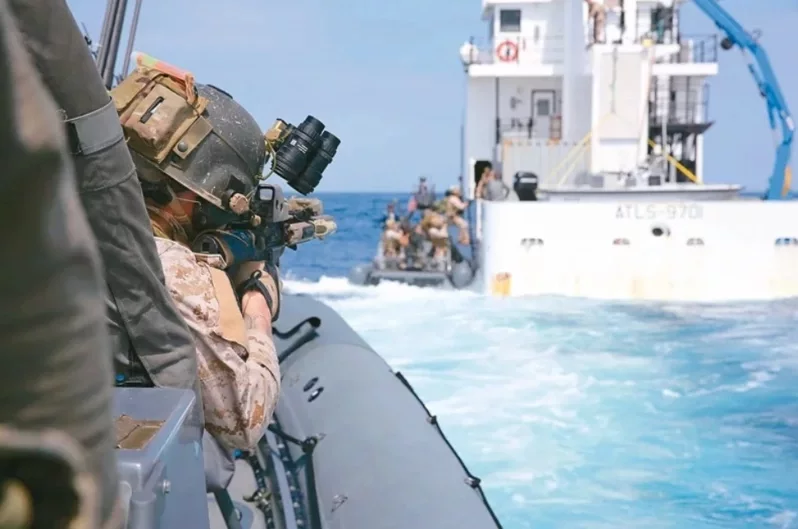
The American media has recently and steadily reported on the stationing of U.S. military troops in Taiwan. Actually, while the U.S. military has indeed arrived in Taiwan on a permanent basis for the first time through a special cooperative operations unit established this year, this unit is actually very small and low in rank, with only about a dozen units under the command of an officer. It is a joint-training unit in nature, and is not there to defend Taiwan.
America’s hurried and clumsy withdrawal from Afghanistan has damaged the prestige of the U.S. military, and support for the Biden administration has plummeted. President Joe Biden recently stated publicly that the U.S. is committed to defending Taiwan. Meanwhile, the media disclosed that the U.S. is “stationing” troops there. This situation is obviously a political stunt. In addition to helping the U.S. military regain prestige, this move, most importantly, is meant to boost Biden’s image. It shows that the U.S. government’s loyalty to its allies remains the same and that the U.S. can still stand tall before China, its main enemy.
After the withdrawal from Afghanistan, U.S. military resources underwent internal review and were eventually shifted from the Middle East to the Indo-Pacific in response to the situation in the South China Sea. This year, in coordination with Taiwanese officers, a U.S. security force assistance brigade arrived in Hukou Township for joint training with a combined arms battalion. Compared with the scope of U.S. troops stationed in Afghanistan, however, the number of troops sent to Taiwan is a drop in the ocean and fundamentally different. While the U.S. has released vague information, it has not clearly indicated the nature of this mission, leaving it up to the media to speculate. Obviously, this military move is in response to domestic political demands, a political stunt meant to provoke the Chinese Communist Party.
In their new book “Peril,” The Washington Post’s senior reporter Bob Woodward and political reporter Robert Costa reveal that during the last few months of former President Donald Trump’s administration, Gen. Mark Milley, chairman of the Joint Chiefs of Staff, worried that Trump might incite war between the U.S. and China. Twice he secretly called Gen. Li Zuocheng, the chief of the Joint Staff Department of the Central Military Commission, to assure him that the U.S. had no intention of using force. This information has made the rest of the world doubtful about America’s resolution to fight the People’s Liberation Army.
As support for Biden has decreased and confrontation with the CCP has increased, this military operation is obviously good business for the Biden administration and a chance to boost support. Still, a political stunt is just a political stunt. Isn’t that obvious in view of the fact that after Biden publicly committed to protecting Taiwan, the State Department quickly feigned ignorance and avoided questions? This is clearly a double-handed strategy. I trust that both sides of the strait understand these kinds of domestic demands and will not engage with it.
What differs about this special cooperative operations unit stationed in Taiwan compared with those in the past is its permanent basis. Although the joint-training aspect is significant, there is nothing joint-defense about it. In essence, it is no different than past military exchanges with the U.S.: in a battle, Taiwan’s army still has to defend itself. Of course, we are happy to see the U.S. military increase assistance in training Taiwan’s troops. And we hope that strengthening power and the intensive military aircraft and naval patrols will help secure the situation in the Taiwan Strait. However, we politely decline to be involved in looking to benefit by provoking the CCP with vague information and vainly using political stunts related to cross-strait relations. And that goes for both the U.S. and our leaders.

Leave a Reply
You must be logged in to post a comment.